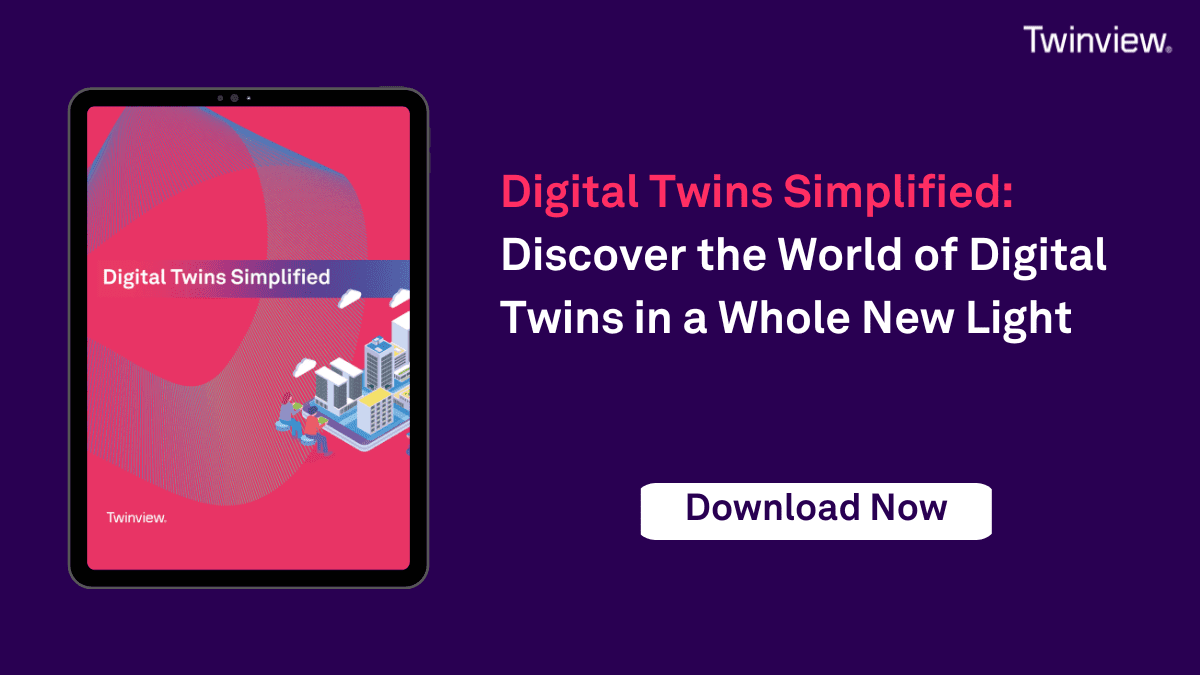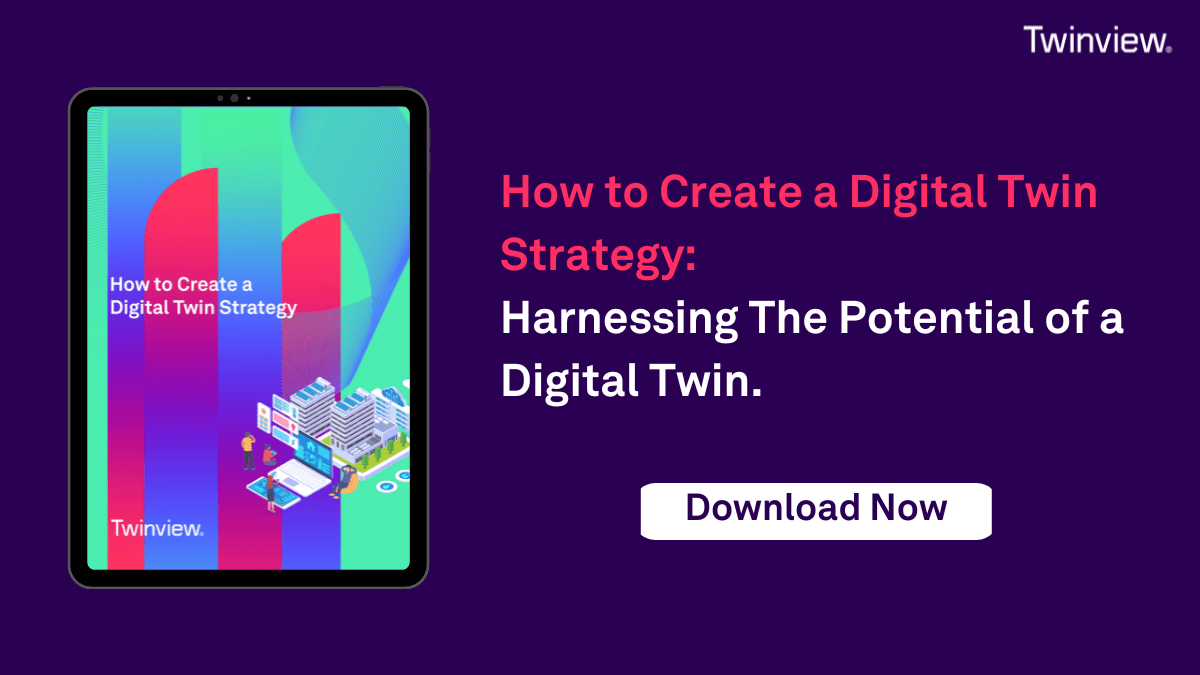24 Aug 2023 | Industry Insights
Our Comprehensive Glossary on Digital Twins in Buildings

Our Comprehensive Glossary on Digital Twins in Buildings
Welcome to our comprehensive glossary on digital twins in buildings. As technology continues to rapidly evolve, it's important to stay informed about the latest advancements that can impact your building. Throughout this glossary, we aim to explore the concept of digital twins for buildings in detail, providing a sweeping understanding of what they are, how they work, and their benefits in the context of building handover, management and operations.
- Artificial Intelligence (AI): The use of computer algorithms and technologies to analyse vast amounts of data generated by the digital twin to enable predictive analytics, optimisation, and automation of processes to enhance performance and decision-making capabilities in real-time.
- Asset Data: Information about a physical asset used within a digital twin.
- Augmented reality (AR): Augmented reality is a technology that superimposes a computer-generated image onto a user's view of the real world.
- Building automation system or Building management system (BAS & BMS): A building automation (or management)) system controls and monitors a building's mechanical and electrical equipment, such as lighting, HVAC, and security systems.
- Building handover: Building handover refers to the process of transferring ownership of a constructed or renovated building from the contractor to the owner. It involves ensuring that all required documentation, permits, and certificates of occupancy are obtained and that the building is safe, functional, and ready for use.
- Building information modelling (BIM): A process that involves creating accurate and detailed digital representations of the physical and functional aspects of buildings. BIM allows for the efficient management of all aspects of a building.
- Building performance simulation: The use of computer models to predict and evaluate a building's energy performance, indoor environmental quality, and other factors.
- Building resilience: The ability of a building to withstand and recover from natural disasters, climate change, and other environmental hazards.
- Cloud computing: The delivery of computing services, including servers, storage, databases, networking, software, analytics, and intelligence, over the internet.
- Cybersecurity: The practice of protecting internet-connected systems, including hardware, software, and data, from cyber attacks, theft, damage, and unauthorised access.
- Data analytics: Scrutinising raw, unprocessed data to draw conclusions and derive insights.
- Digital model: A static, virtual representation of an object, system, or process created using computer software and stored in digital format.
- Digital shadow: Focused on data collection, a digital shadow is a term used to describe the digital footprint or data trail left behind by an asset and its components.
- Digital thread: A virtual connection that links all the data and information related to a product or process throughout its lifecycle, from design to production to operation.
- Digital transformation: The use of digital technologies to fundamentally change operations, processes, and models.
- Digital twin: A virtual replica of a physical counterpart used in real-time to monitor, analyse, and optimise asset performance.
- Digital twin platform: A singular software platform that enables the creation, visualisation, and analysis of digital twins for various applications, including building design, construction, and operation.
- Energy management: The process of monitoring, controlling, and conserving energy in a building or facility.
- Geographical Information System (GIS): A system designed to capture, store, manipulate, analyse, manage, and present spatial or geographic data.
- HVAC system: An HVAC system stands for Heating, Ventilation, and Air Conditioning. It is a system that is designed to regulate the temperature, humidity, and air quality in a building or space.
- Internet of Things (IoT): A network of physical devices and appliances embedded with sensors, software, and connectivity to enable the collection and exchange of data.
- Life cycle assessment (LCA): A method of evaluating the environmental impact of a building or product throughout its entire life cycle, from raw material extraction to disposal.
- Machine learning (ML): A form of artificial intelligence that enables a system to learn and improve from experience without being explicitly programmed.
- Predictive maintenance: A maintenance strategy that uses data analysis and machine learning to predict when equipment maintenance is needed.
- Remote monitoring: A mechanism designed to allow for off-site supervision and control over a variety of systems and appliances within a building, including heating, ventilation, air conditioning, lighting as well as safety measures against fire and security.
- Sensor technology: A technology that enables the detection and measurement of physical phenomena, such as temperature, humidity, and motion, using sensors and other devices.
- Simulation: A virtual model or representation of a real-world system or process that enables analysis, testing, and optimisation of that system or process.
- Smart building: A building that uses advanced technology to optimise its performance, enhance occupant comfort and productivity, and reduce energy consumption.
- Smart grid: An electrical grid that uses digital technologies to monitor and control the flow of electricity, improve reliability, and integrate renewable energy sources.
- Wireless communication: A technology that enables the transmission of data and information over a wireless network, using various protocols and standards.
We welcome your input and would be grateful for any contributions you believe would enhance our glossary. Please don't hesitate to contact us if you have any suggestions.

eBooks
Digital Twins Simplified
Discover the world of digital twins in a whole new light with our eBook, Digital Twins Simplified! Specifically tailored for construction enthusiasts and professionals, this comprehensive guide demystifies the concept of digital twins, breaking it down into easily digestible insights. Uncover the transformative potential of this cutting-edge technology as you explore real-world applications, benefits, and strategies to revolutionize your construction projects.
Read more

eBooks
How to Create a Digital Twin Strategy
In the era of digital transformation, businesses across various industries are leveraging innovative technologies to enhance their operations and drive growth. One such groundbreaking technology is Digital Twinning. However, to truly harness its potential, a well-thought-out digital twin strategy is vital. This is where our latest PDF - "How to Create a Digital Twin Strategy", part of the Demystifying Digital Twins series, comes into play. This detailed guide is designed to provide you with a clear roadmap to establish a successful digital twin strategy that can significantly impact your business outcomes.
Read more
Book your one-on-one appointment with one of our specialists.
info@twinview.com
+44 (0)844 800 6660
London
24 Greville Street
Farringdon
London
EC1n 8SS
Newcastle
Spaceworks
Benton Park Road
Newcastle upon Tyne
NE7 7LX

